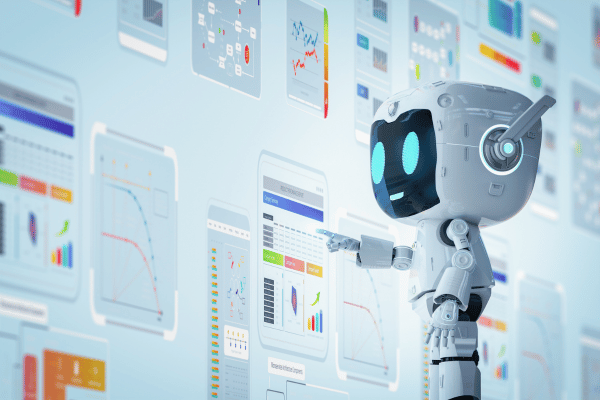As artificial intelligence (AI) continues to evolve, it’s becoming an essential tool for modern marketing. Whether it’s personalizing customer experiences or streamlining operations, AI has the potential to transform how businesses connect with their audience. But how can marketers effectively tap into AI’s massive potential? The answer lies in understanding the different types of AI applications and knowing when and how to implement them into your business.
How to Start Integrating AI to Marketing
For many companies, the journey into AI-driven marketing starts with simple, stand-alone tools. Think chatbots that handle customer service inquiries or automated email marketing systems. These applications are a great entry point—they’re relatively easy to set up and can quickly add value by automating repetitive tasks. However, their impact is limited.
To truly get benefits out of AI-driven marketing strategies, companies need to look beyond these basic tools and start integrating advanced AI systems, especially those powered by machine learning. These technologies go beyond rule-based automation, learning from data to make smarter decisions. For instance, AI can predict customer behavior, recommend products, or even optimize ad targeting in real-time. The more data you feed these systems, the smarter they become—and that’s where the real power of AI lies.
The Path to Success: Crawl, Walk, Run
If your company is new to marketing transformation with AI, don’t worry—you don’t have to dive into the deep end right away. Many firms take a “crawl, walk, run” approach, starting with basic, stand-alone AI applications before gradually moving toward more complex, integrated solutions. Start small, gain experience, and build up your AI capabilities over time.
Once you have a handle on simpler tools, you can start experimenting with machine learning and integrated AI systems. These can be game-changers for marketing. Picture a system that knows exactly when to offer a product recommendation or how to personalize messaging to increase conversion rates—it’s like having a super-smart assistant fine-tuning every step of the customer journey.
The Future is Integrated AI
The ultimate goal for most marketing teams should be to implement fully integrated AI systems that work seamlessly across platforms. These advanced tools can handle everything from predicting sales trends to managing customer relationships. While this may sound complex, the payoff is huge—AI in marketing can not only increase efficiency but also create more meaningful and personalized interactions with your customers.
But with great power comes great responsibility. As AI becomes more embedded in marketing processes, companies must prioritize customer privacy and data security. Transparent data policies and customer trust are essential for long-term success.
Conclusion: Long-term AI Strategy
AI is already changing the marketing game, but we’re just scratching the surface of what’s possible. As marketers, embracing AI-driven marketing strategies isn’t just about jumping on the latest tech trend—it’s about laying the groundwork for future growth. By starting small, learning as you go, and keeping customer trust top of mind, you can use AI’s full potential to drive your marketing strategy forward.
